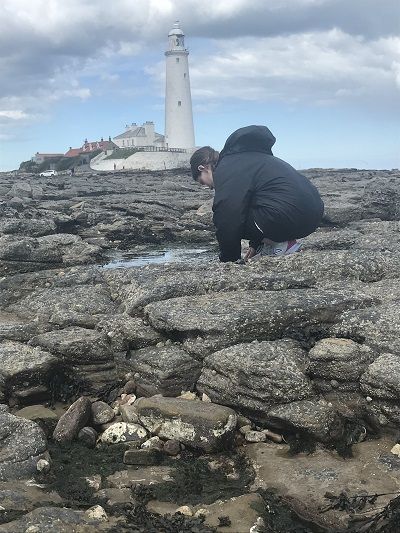
Stella Ferguson
- Course: BSc Geography (Industrial)
Choosing Leeds
One of the key reasons I chose to study physical geography at the University of Leeds was the opportunity to undertake a purely human or physical based geography course. Many other universities choose to blend both human and physical aspects into one degree. The options at Leeds meant that I could focus on the area of geography I was most interested in, allowing a deeper and more thorough understanding of the chosen discipline.
The course also offered several fieldtrips, with many of them paid for by the university, allowing me to receive hands-on practical experience in the field. Leeds also provides the option to undertake a year in industry/study abroad between year 2 and year 3 of the degree. I opted to take a year in industry.
The experience has been invaluable in strengthening my employability through developing a host of transferable skills and crucial hands-on experience in a professional working environment.
Studying Geography
Opting for a degree in physical geography could not be any more apt given the current climate crisis. Physical geography provides an understanding of how the natural world around us changes and is changing, such as the climate system, geomorphology and global terrestrial and aquatic ecosystems.
Natural processes and patterns are dramatically changing as a result of climate change. Working to understand these changes not only allows us to conserve the natural world, but also dictates human survival. Physical geography is therefore a highly relevant and employable degree.
Research Project
For my final year dissertation, I initially chose to undertake a project on microplastics in the marine environment at a local nature reserve. I chose to focus on microplastics due to the growing concern in both the public and scientific realm. Widespread usage of single-use plastic and poor recycling facilities across the UK has led to pervasive accumulation of plastic pollution in the environment. For example, plastic from street litter and landfill may be broken down by wind and rain, transported through waterways and ends up in our oceans. Plastic may then be ingested by marine life, such as by whales, sea birds and molluscs. The effects of ingestion are devastating for wildlife, as digestive tracts can be blocked, growth and reproduction inhibited, and a full stomach of plastic may even lead to death from starvation.
However, given the impacts and restrictions of Covid-19, I was unable to complete the depth of research needed for my dissertation, and therefore pursued a desk-based project. However, as I had already obtained valuable and conclusive data through several pilot studies at the reserve, I was able to independently take the project further. With rates of plastic production only increasing, and continued overreliance on landfill, raising awareness of microplastic accumulation in the environment, particularly the marine, is increasingly important. This independent research project aimed to do just that.
As part of the pilot studies, primary data was collected at St Mary’s Island in North Tyneside, whereby Acorn Barnacle and Periwinkle samples (abundant at the reserve) were collected and processed at the School of Geography laboratories to test for microplastic accumulation. Results indicated widespread accumulation in microplastics across the samples, thus indicative of accumulation of microplastics across the reserve, with the implications of this highlighted above.
Exhibiting at St Mary’s Island
Given the results of the study, the reserve manager and I both agreed that the findings should be showcased to shed light on plastic pollution and educate the local public. The small exhibition at the reserve also aims to offer ways forward, such as through suggesting alternatives to single-use plastic, and improving recycling knowledge. The findings are due to be showcased at St Mary’s Island this summer.
Graduate Outcomes
I have recently completed my final year of study at the University of Leeds, and I am due to graduate this summer, 2021. I have since obtained a graduate role at an environmental consultancy in Manchester (where I undertook my year in industry) and I am looking forward to starting the role this Autumn.
In the future I would love to continue taking part in activism and further contribute to protecting the environment, not only through my job, but also in my free time. Afterall, there is no Planet B!


